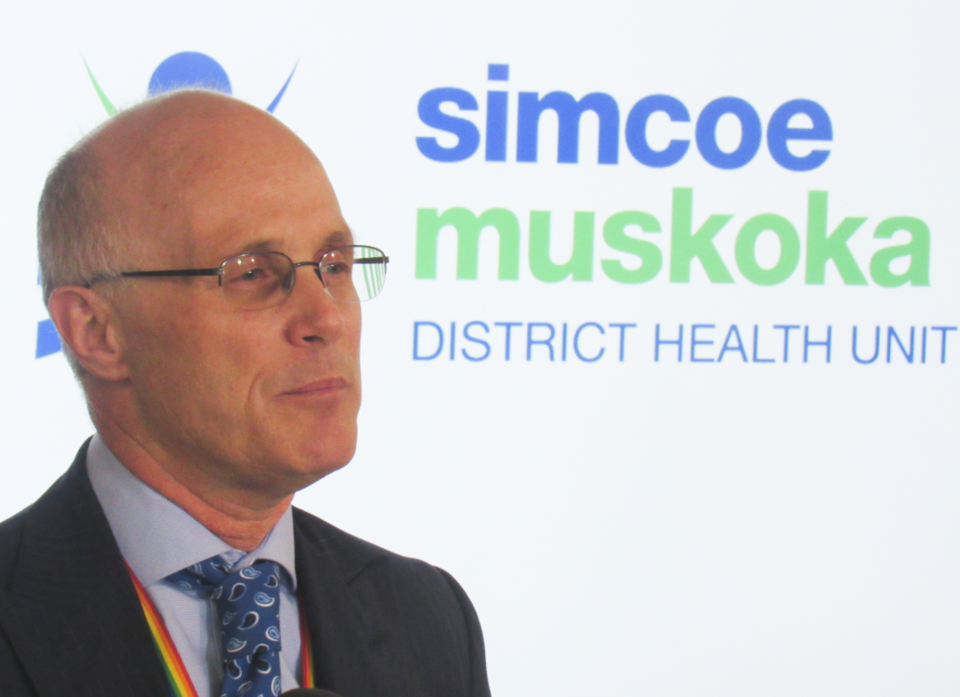Simcoe County neighbourhoods with a high proportion of “ethnic diversity and visible minorities” have infection rates more than double neighbourhoods with less diversity.
The health unit wants to dive deeper into that information to better understand and highlight the impact of discrimination and other social determinants on people's health.
Dr. Charles Gardner, medical officer of health for Simcoe Muskoka District Health Unit, said that report will be posted to the health unit website later this week. He says it’s going to be an important part of the health unit’s efforts to “draw attention to the social determinants of health.
“We want to … raise people’s awareness about these things and to foment public policy that would help address differences in socioeconomic groups – groups based on ethnicity and race,” said Gardner.
In an annual report posted to the health unit website, Gardner wrote the social determinants of health shape 60 per cent of a person’s health status.
“Our income, education, occupation, early life nurturing, social support networks, and freedom from discrimination all have a powerful impact on our life expectancy and our likelihood of experiencing illness,” wrote Gardner.
Last week he said, "racism is a public health matter."
Thus far, the health unit has not collected race data from individuals who test positive for COVID-19, rather staff have used neighbourhood demographic information from Statistics Canada and compared it to known addresses of those who are infected.
The results showed a two-fold increase in infection rates in neighbourhoods with a high proportion of ethnic diversity compared to those with few to no "visible minorities."
"At Simcoe Muskoka we're certainly interested in the social determinants of health and the degree to which income and occupation and ethnicity and race impact on health," said Gardner. "And we know from research in other areas in Ontario and elsewhere that these things impact on transmission of COVID-19."
This week, Ontario’s government has proposed legislation to mandate the collection of race data in a consistent way.
Under the proposed changes people will be asked questions about their race, income, languages spoken and household size. Answering the questions would still be optional and personal privacy would still be protected.
Gardner says its a positive change that will allow the health unit to better understand the impact of social determinants, including discrimination.
“We’ve had this fallback of looking at neighbourhood data, and it would be more helpful to us if we could do it with individual-level data,” said Gardner.
Because COVID-19 is a reportable disease in the province, staff from public health units can reach out to the individuals infected with the coronavirus disease.
“We are able to talk to them and get information directly from them,” he said, noting it’s possible the provincial move to allow race data to be collected from COVID-19 patients could have future implications. “In theory, we could do that with other reportable diseases.”
For more information on health equity from the Simcoe Muskoka District Health Unit, visit their website.



